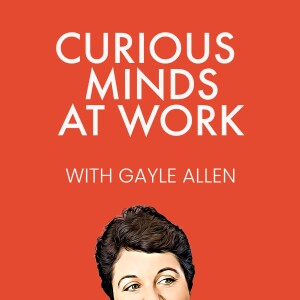
CM 128: Kartik Hosanagar On How Algorithms Shape Our Lives
 2019-03-12
2019-03-12
Download
Right click and do "save link as"
Are we making our own decisions or are machine learning algorithms making them for us?
Kartik Hosanagar, author of the book, A Human’s Guide to Machine Intelligence: How Algorithms are Shaping Our Lives and How We Can Stay in Control, explains that algorithms are merely a set of steps for making decisions. Yet he points out that artificial intelligence has become so pervasive in our lives that we’re often unaware of just how many decisions machines are making on our behalf: “The algorithms [are] driving 70-80% of the choices that people [make]…[But] if we asked people how much of your choices are driven by algorithms, they might say maybe 10-20%. We think we are…choosing…but in reality, they are curating our world for us.”
In this interview, we talk about what companies should be asked to reveal about their algorithms. We also discuss why we need to educate ourselves about how they work. We also discuss some of the unexpected research findings that arise when machines learn from each other, rather than humans. For example, in one study, a surprising thing happened as machines were learning how to negotiate: Karthik explains that “…the bots were negotiating with each other using words and sentences that made almost no sense to the researchers. The bots had figured out a secret code to communicate with each other that was allowing them to communicate more efficiently.”
Kartik Hosanagar is Professor of Technology and Digital Business and Professor of Marketing at the University of Pennsylvania’s Wharton School of Business. His writing has appeared in Wired, Forbes, and the Harvard Business Review.
Episode Links
@KHosanagar
Irresistible by Adam Alter
Reporter Carole Cadwalladr’s The Guardian article on Google search bias regarding Jews
A more recent article on Google search algorithm bias
Kevin Gibbs and the Google autocomplete origin story
Code of Hammurabi
Jennifer Logg and her work on algorithmic and human judgment
Berkeley Dietvost, Joe Simmons and Cade Massey’s paper on our how humans avoid algorithms after they make errors
Rene Kizilcec’s paper on the effects of transparency on trust when it comes to algorithms
James Barrat
You can learn more about Curious Minds Host and Creator, Gayle Allen @CuriousGayle and www.gayleallen.net.
If you enjoy the podcast, there are three simple things you can do to support our work. First, subscribe. That way you’ll never miss an episode. Second, tell a friend or family member. You'll always have someone to talk to about the interview. Third, rate and review the podcast wherever you subscribe. You’ll be helping others find their next podcast.
A Short List of Places Where You Can Find Curious Minds
Spotify
iTunes
Tunein
Stitcher
Google Play
Overcast
view more
More Episodes
CM 050: Julia Shaw on the Science of Memory
 2016-08-22
2016-08-22
 2016-08-22
2016-08-22
CM 048: Dacher Keltner on the Power Paradox
 2016-08-08
2016-08-08
 2016-08-08
2016-08-08
CM 047: Todd Rose on the Myth of Average
 2016-08-01
2016-08-01
 2016-08-01
2016-08-01
CM 045: Lynda Gratton on The 100-Year Life
 2016-07-18
2016-07-18
 2016-07-18
2016-07-18
CM 039: Anders Ericsson on Peak Performance
 2016-06-06
2016-06-06
 2016-06-06
2016-06-06
012345678910111213141516171819
Create your
podcast in
minutes
- Full-featured podcast site
- Unlimited storage and bandwidth
- Comprehensive podcast stats
- Distribute to Apple Podcasts, Spotify, and more
- Make money with your podcast
It is Free
- Privacy Policy
- Cookie Policy
- Terms of Use
- Consent Preferences
- Copyright © 2015-2024 Podbean.com




